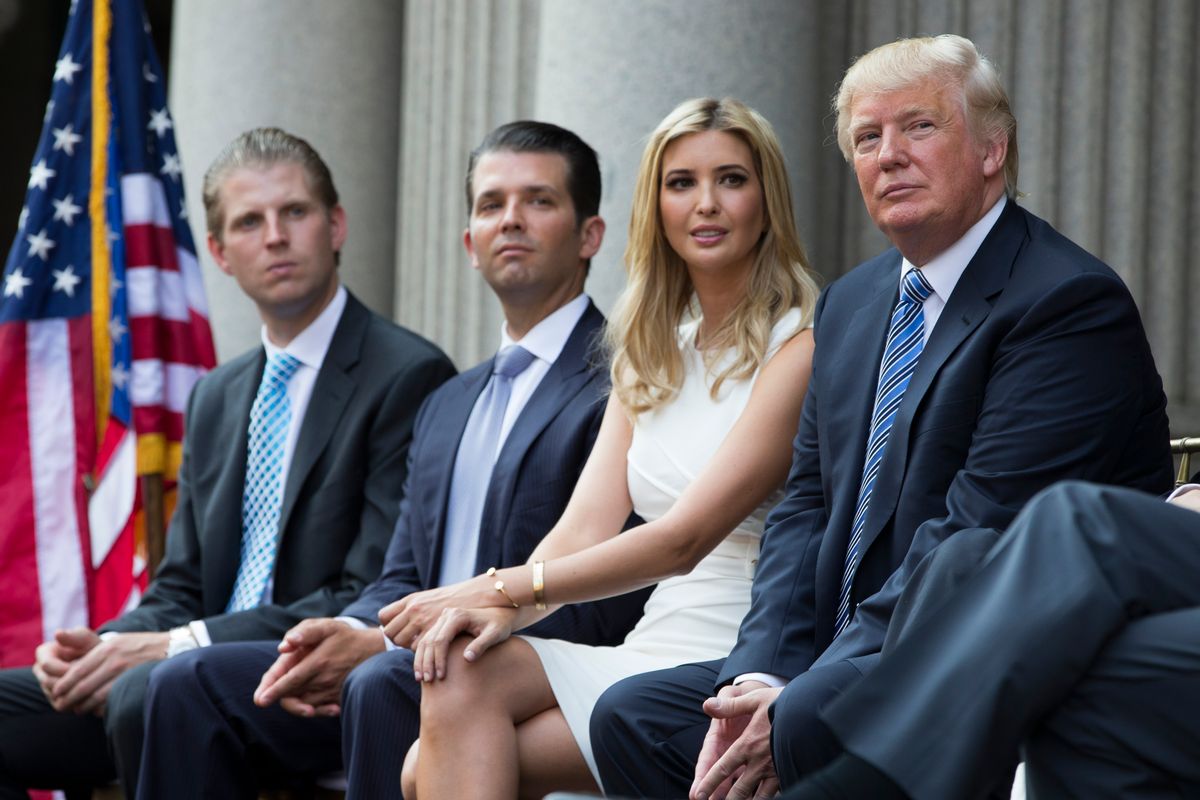While promoting his tax plan, President Donald Trump said: “I am doing the right thing, and it’s not good for me. Believe me.” Contrary to Trump’s statement, however, his plan would be very good for him – at least financially.
The newly released GOP tax plan, largely shaped by Trump’s advisers, calls for repealing the estate tax after six years. That, alone, would save Trump’s heirs close to $600 million. Put in perspective, that would be equal to the combined net worth of 6,000 U.S. families of a median net worth, according to data the Federal Reserve recently released.
In total, heirs to 15 of the wealthiest administration officials stand to save about $1.7 billion – a total equal to the combined net worth of 18,000 U.S. families of median net worth.
Comparing the administration’s estate tax savings to the cumulative net worth of families of color only, the numbers are even starker: The heirs to the wealthiest Trump administration officials estate tax repeal savings would equal the combined net worth of 83,000 Hispanic or Latino families of a median net worth or 98,000 African-American families of a median net worth.
Proponents of repeal, like House Speaker Paul Ryan, claim that the estate tax hurts “family farms” and “small businesses.” In fact, it affects only the wealthiest 0.2 percent of estates because it doesn’t even take effect until a couple has accumulated $11 million in net worth. Only about 80 small businesses or small farms are affected by the tax in a given year. It would be quite a stretch to refer to Donald Trump, billionaire Commerce Secretary Wilbur Ross or Goldman Sachs alumnus turned economic adviser Gary Cohn as family farmers or small business owners.
The newly released GOP tax proposal inadvertently exposes the phoniness of the “small businesses and family farms” rationale. The proposal calls for doubling the estate tax exemption to $22 million per couple. That should exempt just about all of the few family farms and small businesses that might owe some estate tax under the current, very generous formula. If the GOP’s main concern were for the small businesses and farms currently affected by the estate tax, their leaders would have stopped there.
But they did not. The GOP proposal takes the additional step of calling for altogether eliminating the tax in six years. That proposal proves what sentient observers knew all along: the “small businesses and family farms” claims were just cover to sneak through a giveaway to the super wealthy.
Trump reportedly wanted to call the proposal “The Cut, Cut, Cut Act.” Perhaps he thought if he said “cut” enough times, people wouldn’t ask who all those cuts are for. There is no policy proposal more tilted towards the wealthiest Americans than repealing the estate tax.
It is in some ways fitting, albeit sad, that a president who once remarked that the $1 million loan his father gave him to start his business was “a very small loan,” and who borrowed tens of millions from his father after that, would want to repeal the estate tax. When dad’s estate is the bank, you want that bank flush with as much cash as possible. Trump wants the same for his heirs.
Repealing the estate tax would reveal that the interests of the 0.2 percent are more important to our elected leaders than those of the other 99.8 percent of Americans. We know this because at the same time the administration is proposing the repeal, it is alleging that the government can’t afford funding for Medicare, Medicaid, nutrition assistance for women, infants and children, grants for teacher training and affordable housing or medical research.
When touting the supposed benefits of the Republican health care plan, Ryan cheered the $337 billion in estimated savings over a decade as a major selling point. The savings were in large part due to the fact that the plan would leave 24 million more people uninsured.
Repealing the estate tax would cost close to $300 billion over a decade.
One can learn a lot about an administration by how it values $300 billion: Healthcare for 24 million people or massive tax cuts to the wealthiest 0.2 percent – including the president.
The administration found only the latter to be worth the cost.



Shares